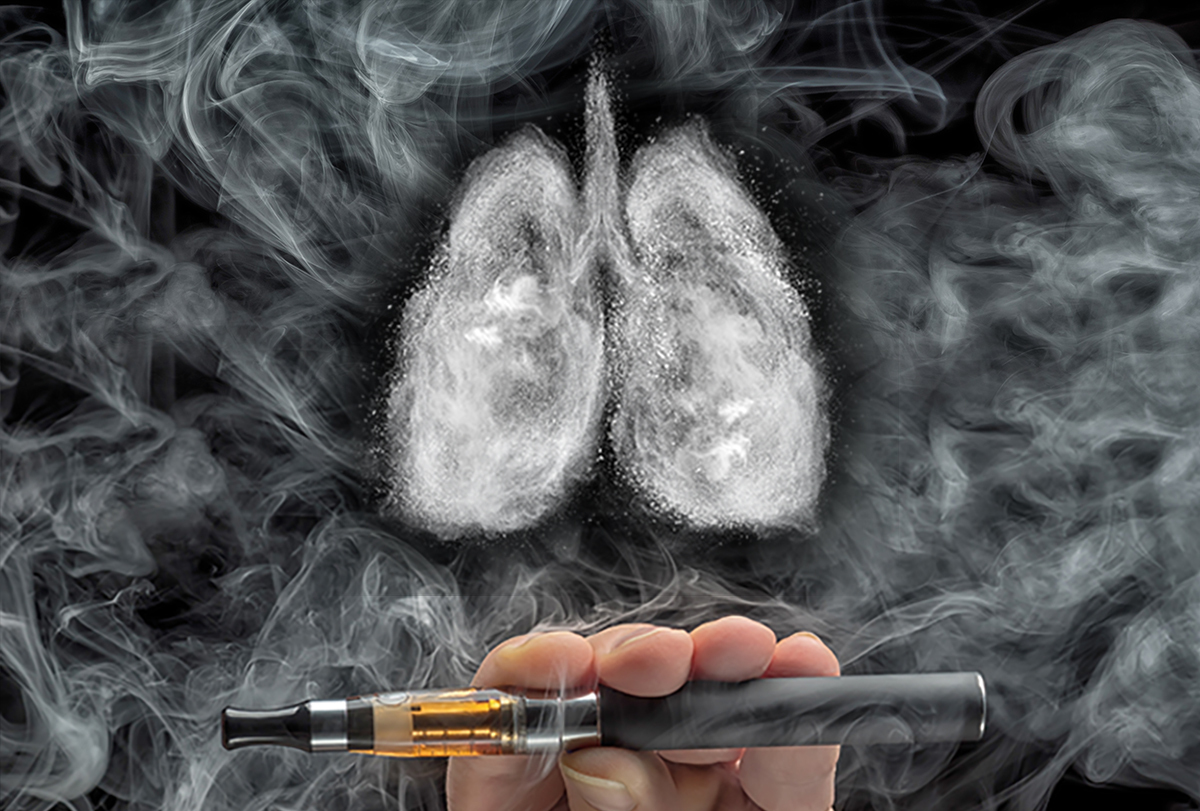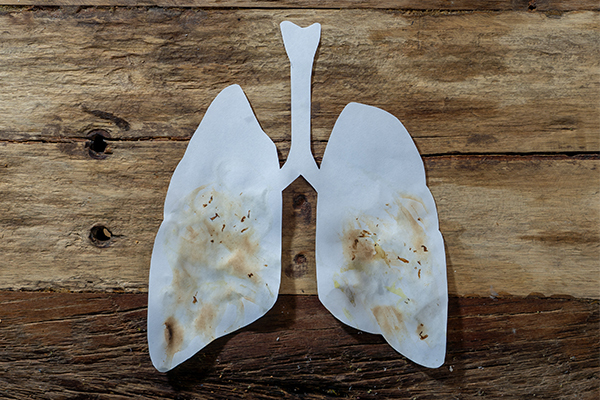In this article:
E-cigarettes are handheld vaporizing tools that are available in different shapes, sizes, and flavors. These products are currently being reviewed by the Food and Drug Administration for their health effects.

Therefore, the common notion, of e-cigarettes being safer than traditional cigarettes, may be false. This article discusses the effects of vaping on your health.
About Vaping
Vaping refers to a tobacco-free form of smoking using electronic cigarettes or e-cigarettes. These handheld vaporizing tools are equipped with a heating element and a fluid-containing cartridge that can be replaced or refilled.
The fluid is a mixture of nicotine, flavorings, and other chemicals, which produces aerosols when heated. This entire process simulates the experience of smoking a regular cigarette, without actually lighting a traditional tobacco-containing cigarette.
Why Do People Vape?
Smoking e-cigarettes or vaping is more popular among the youth than adults. This can be gauged from the fact that more than 5 million middle school and high school students in the United States used e-cigarettes this year alone. (1)(2)
The Centers for Disease Control and Prevention (CDC) and the Food and Drug Administration conducted a self-reported study examining the reasons for using e-cigarettes among middle-aged children and high-school students. The top four reasons were: (2)
- Friends or family members used e-cigarettes
- Variety of flavors available, such as mint, candy, fruit, or chocolate
- The belief that e-cigarettes are less harmful than other forms of tobacco, such as cigarettes
- Trying to quit traditional cigarettes
Is Vaping a Safer Alternative to Smoking?
Traditional cigarettes contain over 7,000 different chemicals, some of which are known to be toxic to humans. While the chemicals in e-cigarettes are not exactly known, they have fewer chemicals than tobacco-containing cigarettes.
However, some e-cigarette products marketed as 0% nicotine were found to contain nicotine. (3) Up until 2016, there were no small or large studies that could prove any immediate adverse effects of using e-cigarettes. (4)
However, a recent study has recognized the use of e-cigarettes as an independent risk factor for respiratory ailments. (5) The study claims that the combined effect of vaping and combustible tobacco smoking can prove far more deleterious than the use of either product alone. (5)
Some cases of vaping-related lung injury show evidence that vaping is not a safer alternative to smoking. The safest alternative to smoking is complete cessation.
Harmful Effects of Vaping

E-cigarettes are still fairly new and were not introduced into the US and European markets until the mid-2000s. Thus, the investigations into their long-term effects on health are still quite preliminary and need to be backed by further research.
1. Nicotine-related effects
So far, scientists know that e-cigarettes commonly contain nicotine, which in itself has known side effects such as addiction, toxicity to a developing fetus, cancer, impaired adolescent brain development, etc.
2. Lung damage
Vaping is associated with acute and chronic cough, bronchitis, pneumonia, EVALI, and lung injury.
3. Bad for oral health
Ongoing studies suggest that vaping can have a variety of adverse effects on your teeth and gums, which include excess oral bacteria – which leads to tooth decay, cavities, and gum disease; dry mouth – which causes bad breath, mouth sores, and tooth decay, gum inflammation (6); and overall irritation that can lead to cancer. (7)
E-Cigarette-Associated Lung Injury (EVALI)
Vaping was thought to be less harmful than inhaling cigarette smoke. But recently it was found that certain chemicals in e-cigarettes like tetrahydrocannabinol (THC) and nicotine have led to the current national outbreak of e-cigarette-associated lung injury (EVALI).
As of December 4, 2019, there have been 2,291 cases of vaping-related lung injury reported to the CDC from 49 states in the United States. (8) Of those 2,290 cases reported, there have been 48 deaths associated with vaping-related lung injury.
The exact mechanism of how vaping causes lung damage is still being investigated by scientists. Optimal treatment options for (EVALI) are not known at this time. The criteria for the diagnosis of EVALI are:
- Use of an e-cigarette or related product in the previous 90 days
- Lung abnormalities on chest imaging
- Exclusion of lung infection
- Absence of a likely alternative diagnosis: cardiac, cancer, and/or rheumatologic
Supportive care with oxygen and life support, if needed, has been the mainstay of treatment for EVALI, along with antibiotics and steroids, to assist with possible infections and inflammation.
Vaping Induced Popcorn Lung
Popcorn lung is the nickname for the medical term bronchiolitis obliterans or obliterative bronchiolitis. It is a serious and irreversible condition where the tiny air sacs in the lung become damaged. (6)
Symptoms of popcorn lung include fever, cough, shortness of breath, night sweats, and weight loss.
Popcorn lung gets its name from the fact that it can be caused by the excessive or long-term inhalation of a chemical used to flavor microwave popcorn. (9) A study in 2015 showed that some flavorings for e-cigarettes contained the same chemical – diacetyl. (10)(11)
Tips to Help You Quit Smoking

The CDC has a current guide for quitting smoking. There is no one best technique available to assist with quitting smoking, as each person is different and may require different supports to stop vaping.
The majority of Americans prefer to quit in either of two ways: go “cold turkey” or cut back on cigarettes gradually. (12)
Anyone looking for help quitting smoking can also call 1-800-QUIT-NOW or 1-800-784-8669.
ALSO READ: How Does Smoking Harm Your Health and Tips to Quit It
Final Word
Since vaping is a fairly new alternative to smoking, it cannot be classified as safe due to a lack of research. Both smoking and vaping involve the production of fumes which can impact lung health.
Recent research suggests that vaping can cause lung damage and impair brain development. Therefore, it is best to quit such habits for your long-term health. Consult your doctor for a suitable program to help you quit.
- Was this article helpful?
- YES, THANKS!NOT REALLY


